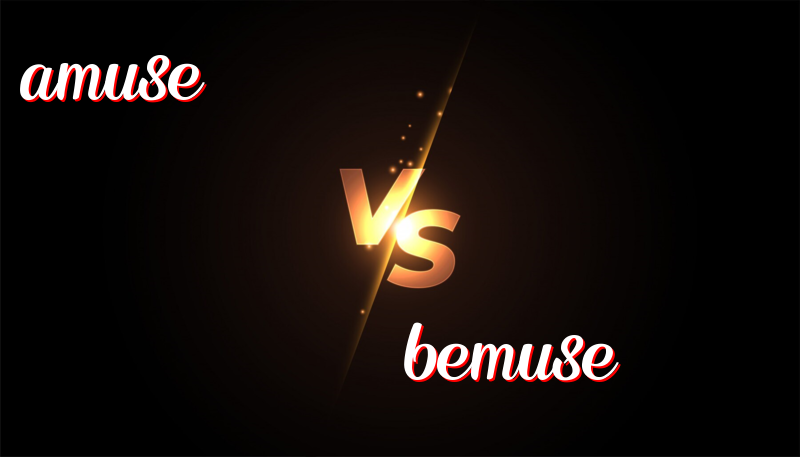英語單詞 “amuse” 和 “bemuse” 的區別
July 18, 2024
解釋 “amuse” 和 “bemuse” 的區別
學習英文時,了解不同單詞之間的細微差別非常重要。今天我們來探討兩個容易混淆的單詞:amuse 和 bemuse。
歷史
Amuse: “amuse” 這個詞源於16世紀的法語 “amuser”,意思是使人分心或娛樂。在現代英語中,它主要用來表示使某人感到快樂或有趣。
Bemuse: “bemuse” 則起源於18世紀。它由 “be-” 前綴與 “muse” (沉思,冥想) 結合而成,意指使人困惑或迷惑。
用法
Amuse:
- 用來形容某物或某人使別人感到開心或愉快。
- 可搭配人或事作為主語。
Bemuse:
- 用來形容某事或某人使別人感到困惑或不解。
- 通常是消極的感受。
記憶技巧
要記住 “amuse” 和 “bemuse” 的區別,我們可以用以下的簡單提示:
- Amuse: 開頭的 “a” 可以聯想到 “amazing”(令人驚嘆的),這樣容易記住它是使人感到快樂的詞。
- Bemuse: 開頭的 “be” 可以聯想到 “bewildered”(困惑的),這樣可以幫助你記住它是使人困惑的詞。
例句
Amuse 的例句:
- The clown’s performance managed to amuse all the children at the party.
- Her funny stories never fail to amuse me.
- The movie was created to amuse audiences of all ages.
- Even a simple joke can amuse my little brother for hours.
- The magician’s tricks always amuse the crowd.
Bemuse 的例句:
- The unexpected turn of events bemused everyone in the room.
- She looked bemused after hearing the complicated instructions.
- The technical jargon in the document bemused many of the readers.
- The sudden question bemused the student.
- The show’s abstract theme bemused the audience.
總結
總結來說,”amuse” 是指某事或某人使大家感到快樂,使其娛樂;而 “bemuse” 則是指某事或某人使大家感到困惑或不解。記住這兩個詞的關鍵在於他們所帶來的情緒感受:amuse 是正向的快樂,bemuse 是負向的困惑。

Leave a Reply
You must be logged in to post a comment.